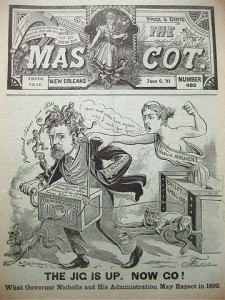The GAB’s Duty of “Careful Examination”: Why Judge Davis Got It Right
I have written a few things on my personal blog about the GAB’s authority and duty to conduct a more thorough review of recall petitions than it apparently intends to conduct. Last Thursday, Judge Mac Davis ordered a more extensive review. Ed Fallone thinks that the judge got it wrong. I disagree. Here’s why.
Ed argues that “there are no explicit provisions in the statutes that direct the GAB to look for and eliminate duplicate, fictitious or unrecognizable signatures. Just a direction not to count signatures that are insufficient under Section 9.10(2)(e).”
I see two problems with this statement. First, the GAB’s obligation upon the filing of a petition is not limited to the elimination of signatures for the reasons set forth in § 9.10(2)(e). To the contrary, the obligation imposed on GAB is to “determine by careful examination whether the petition on its face is sufficient.” Wis. Stat. § 9.10(3)(b). Whatever that duty is, it is nowhere limited by § 9.10(2)(e). Second, as we will see, even if it is so limited, § 9.10(2)(e) does not relieve GAB of the obligation to do what Judge Davis ordered it to do.
So what does this duty of “careful examination” entail?

